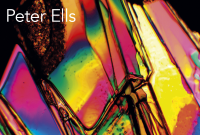

Search:
Contents:
- CHAPTER 1 HOW TO SUBMIT AN INQUIRY
- CHAPTER 2 WRITING YOUR PROPOSAL
- CHAPTER 3 THE CONTRACT OFFER
- CHAPTER 4 AUTHOR SERVICES
- CHAPTER 5 THE EDITORIAL AND PRODUCTION PROCESS
- CHAPTER 6 MARKETING YOUR BOOK
- CHAPTER 7 FAQs
- CHAPTER 8 ROYALTIES
We are not whom we seem to be. Not even close.
From The Deceptive Brain : Blame, Punishment, and the Illusion of Choice by Robert L. Taylor, M.D /IFF books
Neurobehavioral science is sending us an unexpected message. As preposterous as it sounds, we are not who we seem to be. Not even close. Our deeply held conviction that we choose our way through life is being seriously challenged.
Extensively debated for centuries, the role of free will is no longer a speculative matter for philosophers and theologians to debate. Elaborate searches for a self that routinely defies the law of cause and effect by randomly willing and choosing its way through life have failed to turn up anything. Based on compelling and accumulating evidence, numerous neuroscientists and modern philosophers now question what all of us "experience" every moment of our waking lives as rock-solid truth. Their shockingly counter intuitive conclusion: free will is an illusion hiding the hard to accept truth that the lives we experience are fully determined by an ongoing intricate dance of genes and experience. Period, full stop. No free agency involved. From the workings of a highly complex material brain emerges a simplifying, creatively deceptive translation--a metaphorical executive summary.
To put a finer point on it, we are stories, literally, in which each of us experiences him or herself as chief protagonist actively deliberating, choosing, and behaving--all after-the-fact. The evidence for this conclusion is far more substantial than any supportive of free will. This conclusion has far reaching implications, but none more challenging than the questions it raises about the law itself.
Through and through our system of justice is built on a belief in free will. As declared by the United States Supreme Court, it is a foundational assumption. If a person of sound mind understands what he or she is doing is wrong and chooses to do it anyway, the person is considered fully blameworthy and deserving of punishment. It's criminal justice bedrock logic. The more serious the rule broken or crime committed, the greater the blame and punishment required.But if our experience of free will is an illusion--our thoughts and acts fully determined before being translated into after-the-fact stories--this line of judicial reasoning is erroneous. Absent free will, the moral and legal basis for blame and punishment disappears, and current practices become more akin to prosecuting a character in a novel who commits a crime than matters of justice.
There are those who will insist that to do away with blame and punishment--merited or not--would plunge us into lawless social chaos. In doing so they make the mistake of equating blame and responsibility. The two are not the same. Blame assumes intention and choice. Responsibility does not. This principle is well illustrated by existing no-fault (strict liability) laws. You park your car in a restricted area. You face the consequences. No questions ask. You pay a fine. No probing for intention, motive, or state of mind. No blame or punishment required.
As social beings, all of us must be held responsible as a matter of social convention. Absent this requirement our world truly would become chaotic. But blame and punishment are unnecessary and, based on what neurobehavioral science is telling us, unjustified. All laws should be no-fault laws. Call it blameless justice.
Still, there will be those who insist that until we know every detail of why people do what they do, blame and punishment must be preserved. Isn't it possible, they will assert, somewhere in the workings of the brain there is a yet undiscovered, quantum-like, free-willing, random-acting element that renders us blameworthy. At best this seems a feeble, temporizing-and-grasping-at-straws argument. Although we may never know the precise molecular details of what is behind every brain activity translated into human emotion, thought, and behavior, in a strictly determined world we can presume the genetic/experiential causes are there, operating mostly outside our conscious awareness. And keep in mind, while the case against free will remains incomplete, the case for free will--apart from our strong, hard-wired conviction--is non-existent.
Currently, our main criminal justice "correctional" institutions are blame-based punishment centers; mass-incarceration hell holes, riddled with systematic racism, fraught with daily threats of injury or death, and devoid of individual dignity, privacy, and respect. At considerable unnecessary expense, these inhumane paramilitary programs operate as though all inmates are not only fully blameworthy but are also extremely violent and beyond rehabilitation, deserving targets of whatever punishment comes their way. The most notable accomplishments of this approach are cultures of danger and fear, in-house training in criminality, exposure to an array of drugs, substantial mingling of rule breakers with those suffering from substance abuse or mental health problems, and exceptionally high rates of recidivism. These super expensive incubators of criminality persist mainly due to their having become public symbols of being "tough on crime."
An alternative criminal justice based on blameless responsibility would be an entirely different enterprise: less institutional, less paramilitary and less inhumane. Punishment for the sake of punishment would be out. Mass incarceration would be deemphasized. Strategies for protecting against violent individuals would be smarter, more efficient, and much more individualized--all of this while maintaining public safety as a highest priority. Emphasis would be on rehabilitation, appropriate treatment, meaningful education, training, job placement, and resocialization.
Much of what currently is badly managed as mass incarceration would be much better addressed at far less expense outside prison walls with appropriate monitoring. Rates of recidivism would be closely followed as indicators of success or failure. Staff advancement, program funding, and overall policy would all be tied to success in reducing the risk of future crime.
For those who require containment the rest of their lives--sadly, there will be some--the goal would be to help them find as much meaning as possible in a humane, productive, and safe setting while at the same time protecting the public and contributing to the public good.
To continue our romance with the pretender self as a free-willing, master-in-chief is to imbue wilful imagination with magical powers it does not have. This illusion is by no means the only one that characterizes human experience. We see the moon momentarily disappear high in the sky. We experience the world as flat. We watch the woman on the stage sawed in half or the elephant disappear before our eyes. All of these illusions we learn to intellectually override. We can do the same with the illusion of free will. Based on relentlessly accumulating evidence, in time, a radically revised version of criminal justice will be forced. Better it happen sooner than later.
Robert L.
READ The Deceptive Brain, Blame, Punishment, and the Illusion of Choice TODAY! TODAY!
Preposterous as it sounds, we are not who we seem to be.
Not even close. At the heart of this misperception is our deep-seated conviction of free choice. Based on emerging neurobehavioral science findings, The Deceptive Brain makes the case for human experience as a narrative illusion—an executive summary of sorts—that emerges from an incredibly complex brain.
The Deceptive Brain drills down on what this finding means for the way we blame and punish, and presents a bold alternative approach to criminal justice based on blameless responsibility.
Expanding Reality
Understanding where science can take us when viewed without the lens of materialism.
Reality is much more than the physical world before us.
In Expanding Reality, Mario Beauregard examines a variety of phenomena investigated by the most open-minded and visionary scientists. These phenomena provide the evidence that mind, consciousness, and spirit cannot be simply reduced to electrical and chemical activity in the brain.
What is Universalism?
Iff Books publishes non-fiction. It aims to work with authors and titles that augment our understanding of the human condition, society and civilization, and the world or universe in which we live.
Categories:
0 comments on this article

















